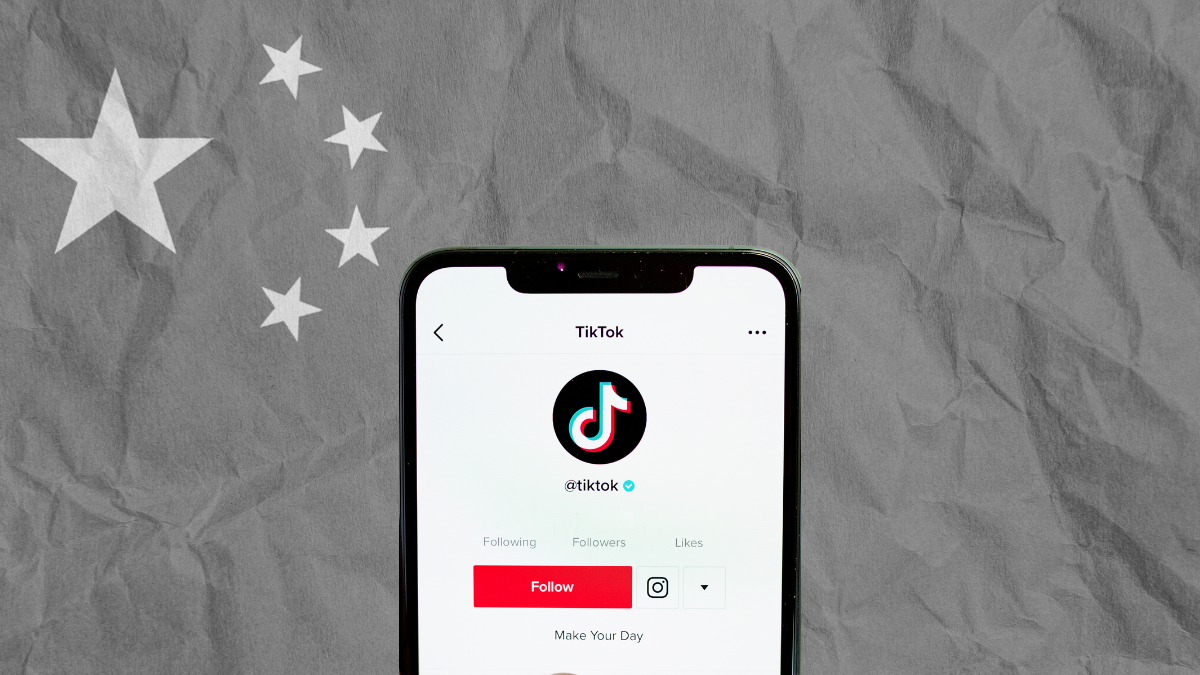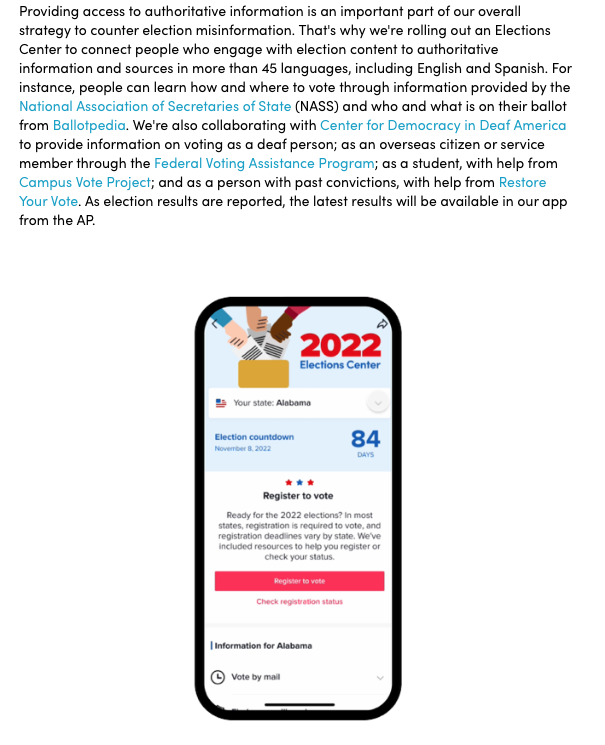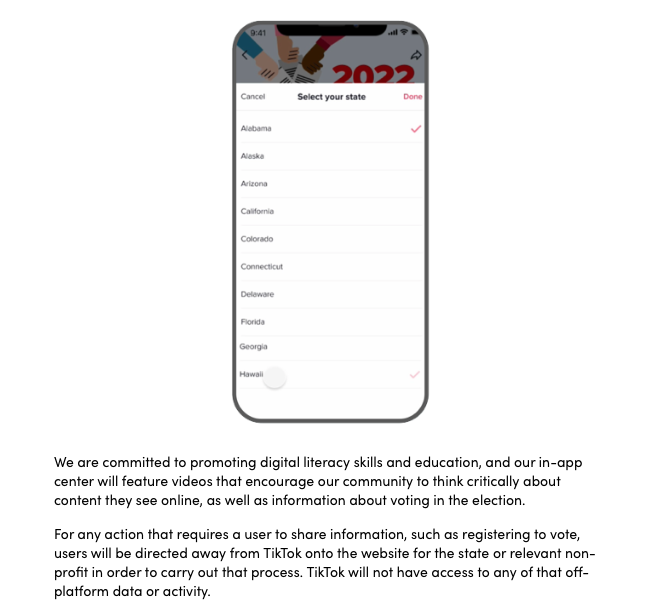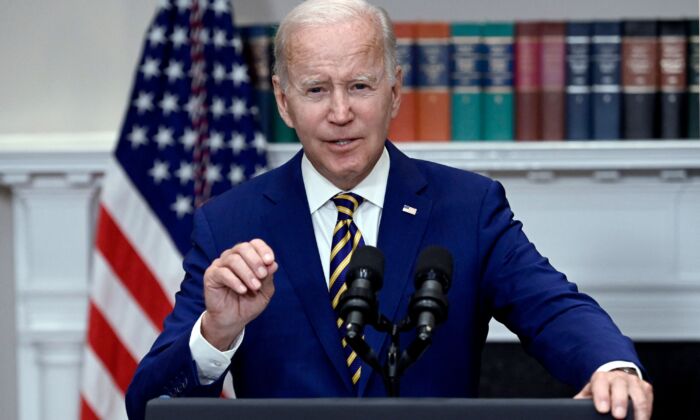TikTok’s New ‘Elections Center’ Is A Massive Threat To National Security

That we’ve forfeited this much control to a hostile foreign power is one of the most mind-boggling, slow-motion political blunders in modern history.
TikTok just unveiled an “Elections Center” that will put detailed voter profiles in the hands of a company based in Beijing, stocked with party members and state employees, subject to laws that allow the Chinese government data access. Given the Chinese Communist Party’s influence over ByteDance, the parent company of TikTok, China could exercise enormous control over the midterm elections with this data. What’s worse is that American institutions are actively encouraging TikTok to do this.
By law, ByteDance is required to give China access to its data upon request. TikTok claims such requests would be rejected, but there is no way to know whether that’s true. We do, however, know that members of the CCP actually work for ByteDance. We also know TikTok’s data has been accessed in China, despite the company’s claims. Finally, we know TikTok is currently the most popular social network in America.
Last week, TikTok boasted in a press release about the creation of its new Elections Center. The center will influence American elections on two fronts: by providing voter information and countering “misinformation.” The first front means TikTok will have voting profiles on all American users who click through the Elections Center, and the second front means a Chinese company will be policing our political discourse on the single most popular social network.


Data
According to TikTok, the center will “connect people who engage with election content to authoritative information and sources in more than 45 languages.” That may sound lovely, but it means when users select their state and click “register to vote,” TikTok can now cross-reference their location and interest in voting with their age, political leanings, and other attributes that can be gleaned from its vast trove of data.
Why does that matter? Tristan Harris of the Center for Humane Technology and “The Social Dilemma” joined “The Federalist Radio Hour” last week to outline the threats posed by TikTok. With the app’s data, Harris explained, China “can look at all the voting districts in the swing states and … can basically look at people’s sentiments with an AI that calculates what people’s opinions are in all the key voting areas.
Then, added Harris, China “can strategically up-regulate everybody who starts to say, you know, China’s really not so bad.”
“If China were to invade Taiwan tomorrow, they could up-regulate all the American voices who are saying that Taiwan was always a part of China,” Harris noted. (Listen to Elbridge Colby’s recent appearance on “The Federalist Radio Hour” to get a sense of how fragile this relationship really is.) That could be done on a local, state, or national scale on a variety of issues.
This is a hypothetical, to be sure, but it’s a tool we’re simply hoping a hostile foreign power will not utilize. Imagine China knows there are a handful of likely Mark Kelly voters in a certain area of Arizona. TikTok could feed them content that could, in turn, encourage more Democrat-leaning users to vote against Blake Masters or feed likely voters who consume conservative content videos that might depress turnout for Masters.
Perhaps there are disincentives for the CCP to actually weaponize TikTok data: It could leak and escalate conflict outside the party’s control; it could harm the bottom line of one of their most powerful companies; it could jeopardize the long-term control China has over the American public’s social and individual health through the app.
There is no guarantee China will weaponize this data now or in the future, but there is absolutely no reason for us to willingly forfeit it either. The risk is not remotely worth whatever reward American consumers think they’re getting.
‘Misinformation’
On the “misinformation” front, it’s obviously bad enough that Big Tech companies based in America or China now believe it’s their duty to police the public discourse. But it’s also in China’s interest to foment cultural discord and hamper politicians who might undercut their geopolitical aspirations. Controlling the rhetoric Americans are allowed to post and see on one of the most popular sources of discussion and information is a major advantage for China.
Would the CCP hand marching orders to ByteDance and TikTok? Maybe, but they also wouldn’t have to be explicit. The overwhelming ideology of censors is one that favors leftism and opposes everything else. The information that gets powerfully suppressed almost always counters the political establishment, whether it’s on transgenderism, race, election integrity, Covid policies, or China.
It’s bad enough a major corporation exerts this much control over the discourse at all, let alone in an election cycle, let alone one owned by China. Whether based in America or overseas, social media makes us less happy and less healthy basically across the board. That we’ve forfeited this much control to a hostile foreign power is one of the most mind-boggling, slow-motion political blunders in modern history.
American Partners
Instead of collective opposition to this transparent data suck, American institutions actually helped and endorsed TikTok’s creation of the Elections Center. TikTok partnered with the National Association of Secretaries of State, Ballotpedia, the Campus Vote Project, and the Federal Voting Assistance Program, among other organizations, to “provide information” on the hub.
The Federal Voting Assistance Program, for example, is a taxpayer-funded government group that “works to ensure Service members, their eligible family members, and overseas citizens are aware of their right to vote and have the tools and resources to successfully do so — from anywhere in the world.” This is a wonderful mission, but whoever authorized the TikTok partnership at FVAP made a bad decision, one that could ultimately help China draw us into a military conflict and gain the upper hand when it comes to influencing public opinion.
It should be an embarrassment for any of these groups to affiliate with TikTok at all, particularly on this effort.
The Threat
Around the time TikTok announced the Elections Center, Forbes reported that “three hundred current employees at TikTok and its parent company ByteDance previously worked for Chinese state media publications, according to public employee LinkedIn profiles.”
Forbes found that 50 of those profiles “specifically mentioned work on TikTok, in areas including policy, strategy, operations, monetization, user experience and localization.” Last month, TikTok confirmed an explosive Buzzfeed report that found U.S. user data had been accessed in China. In 2020, the Department of Justice found that 130 members of the CCP worked for ByteDance in Beijing.
TikTok is furiously working on “Project Texas,” an internal mission to emphasize its independence from Beijing. In the same week TikTok unveiled the Elections Center, Axios reported that Oracle started “vetting TikTok’s algorithms and content moderation models to ensure they aren’t manipulated by Chinese authorities,” now that its data had been routed into Oracle’s cloud.
This still puts valuable data and public influence in the hands of yet another private entity, which may not even be able to detect algorithm manipulation that benefits China when it’s less overtly political and more subtle, like the promotion of trans ideology, anti-Americanism, and more. It also doesn’t ensure Oracle would catch short-term election interference before damage is done.
Earlier this summer, Sen. Marco Rubio, R-Fla., tried to turn Rep. Val Demings’, D-Fla., use of TikTok into a political liability by running an ad on her use of the app. In a sane society, that argument would be a layup. Unfortunately, in a country with tens of millions of daily TikTok users and an elite class of clapping seals more interested in suppressing the unwashed masses than countering China, it probably is not. Shortly after taking office, President Joe Biden actually rescinded former President Donald Trump’s attempted ban on TikTok, despite his party’s incessant posturing about election integrity.
Social media is a public health crisis. Every person who uses TikTok and every organization that partners with it or sends advertising money onto the platform is boosting authoritarian China’s control over our individual well-being, our society, and our world. The company’s new Elections Center underscores the urgency of this threat, putting detailed voter profiles and algorithmic control of a massive platform at the fingertips of a company staffed with loyalists to a hostile foreign government.





